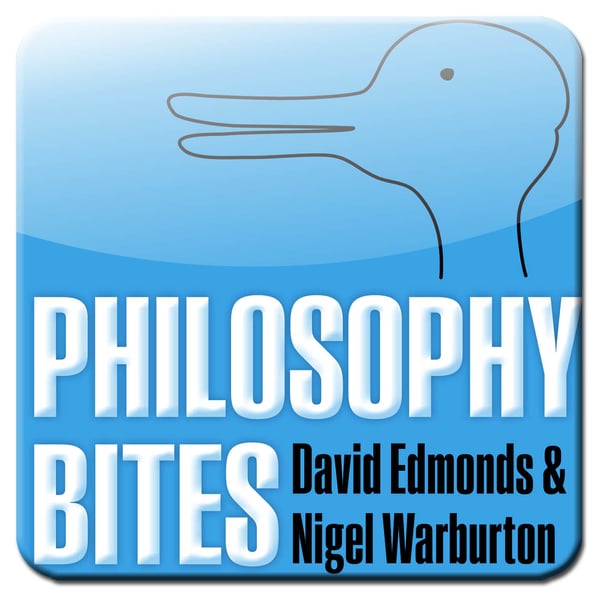Tim Scanlon on Free Speech
Philosophy Bites
Nigel Warburton
4.6 • 2K Ratings
🗓️ 30 May 2008
⏱️ 17 minutes
🧾️ Download transcript
Summary
Transcript
Click on a timestamp to play from that location
| 0:00.0 | This is ethics bites with me David Edmonds and me Nigel Warburton. |
| 0:07.0 | Ethics bites is a series of interviews on applied ethics produced in association with the Open University. |
| 0:13.0 | For more information about ethics bites and about the Open University, |
| 0:17.0 | go to open2.net. |
| 0:20.0 | For John Stewart Mill, the limit of freedom of speech in a civilized society was roughly the point where a speaker was inciting violence. |
| 0:31.0 | But perhaps it isn't as simple as that. For free speech in the well-known example doesn't |
| 0:36.0 | entitle us to shout fire in a crowded theatre. Where then should we draw the line and why? Tim Scanlon, professor in Harvard University's |
| 0:45.2 | philosophy department, has spent much of his career reflecting about issues of |
| 0:49.4 | toleration and free speech. His initial writings on the topic stress that the value of free speech lay in autonomy, in particular |
| 0:57.7 | the right of individuals to have access to information so as to be able to think for themselves. Now he has a more nuanced view which |
| 1:05.0 | takes into account the interests of both speaker and listener and empirical |
| 1:09.0 | considerations about the danger of granting powers to regulation to the state. |
| 1:14.0 | Tim Scanlon, welcome to ethics bites. |
| 1:16.0 | I'm glad to be here, thank you very much. |
| 1:18.0 | Now the topic we're going to focus on today is free speech. |
| 1:21.0 | Presumably you're an advocate of free speech at some level but |
| 1:24.1 | let's start by getting clear what do we mean by free speech? By free speech I |
| 1:27.9 | mean the need for restrictions on the way in which governments can regulate |
| 1:31.0 | speech. Whether speech is free in a further sense, that is whether people |
| 1:34.3 | have opportunities is a very important thing, but it's not the issue of free speech. |
| 1:38.6 | That's really interesting because you immediately began by talking about regulation and controlling, what could we said? |
| 1:44.0 | Well, certainly speaking isn't without costs. |
... |
Please login to see the full transcript.
Disclaimer: The podcast and artwork embedded on this page are from Nigel Warburton, and are the property of its owner and not affiliated with or endorsed by Tapesearch.
Generated transcripts are the property of Nigel Warburton and are distributed freely under the Fair Use doctrine. Transcripts generated by Tapesearch are not guaranteed to be accurate.
Copyright © Tapesearch 2025.

